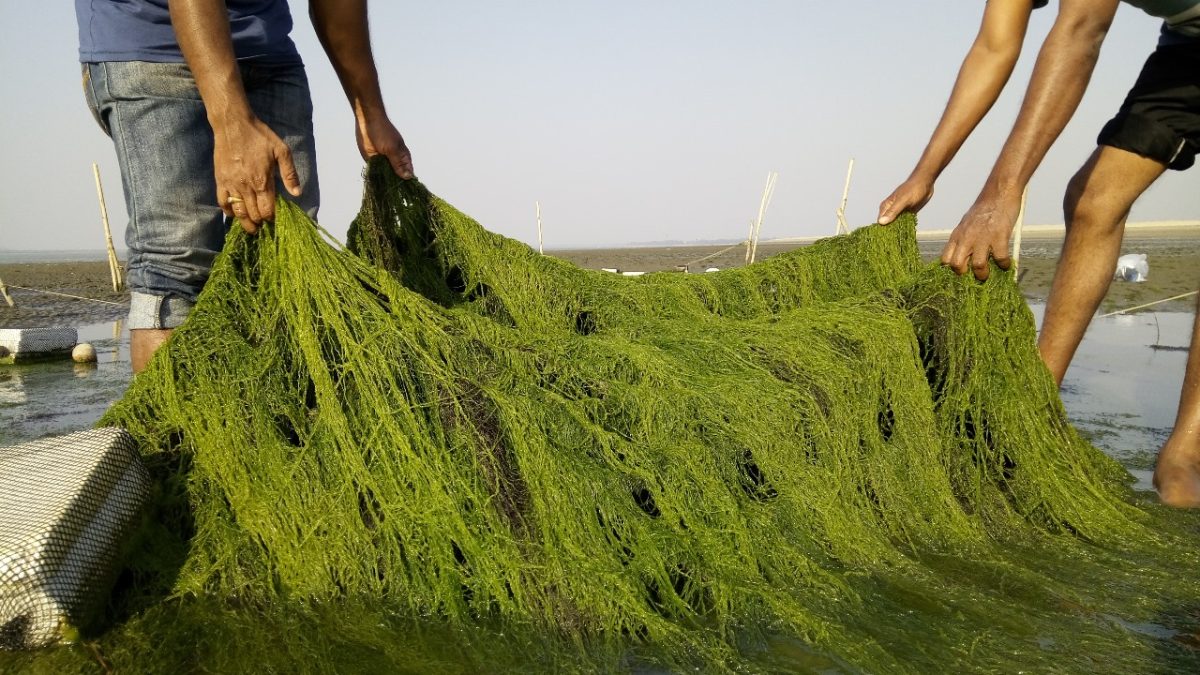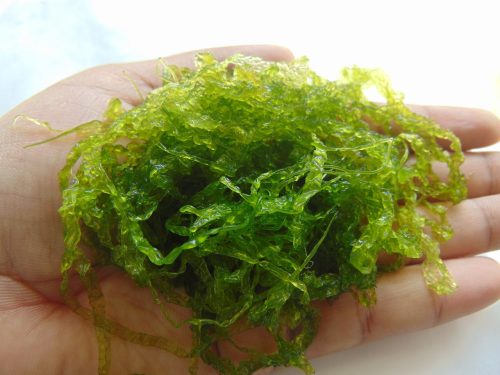Benefits of Seaweed: From Ecological, Economic, and Health Perspectives

Photo Credit : Khairul Alam/Mongabay
Seaweed, also known as marine algae, is a sea plant that grows in shallow waters worldwide. Besides being an integral part of marine ecosystems, seaweed also has various significant benefits in terms of ecology, economy, and health. This article will explain the benefits of seaweed in these three aspects.
I. Benefits of Seaweed in Ecology:
- Enhancing Biodiversity
Seaweed provides a habitat for various marine species, such as fish, shellfish, crabs, and shrimp. They use seaweed as a shelter, spawning ground, and food source. The presence of healthy and abundant seaweed enhances biodiversity in marine ecosystems.
For example, in Indonesia, in the coastal region of Ambon Island, there are 23 types of seaweed that belong to the Rhodophyta, Phaeophyta, and Chlorophyta groups. This seaweed serves as a habitat for various marine species and contributes to the biodiversity of the waters. Moreover, in Wakatobi, Southeast Sulawesi, seaweed is also a leading commodity. In 2022, the production of dried seaweed in this area reached 3,951 tons (Bisnis.com). This seaweed not only contributes to the local economy but also plays a crucial role in maintaining biodiversity and the balance of marine ecosystems in the region.
- Reducing Coastal Erosion
Seaweed has strong roots and holds sediment at the seabed. This helps reduce coastal erosion by stabilizing the beach and providing protection against strong waves and currents. For instance, in Madura, an island off the coast of East Java, Indonesia, seaweed has become an essential component of the coastal ecosystem. Seaweed not only provides a habitat for various marine species but also plays a role in maintaining ecosystem balance, reducing coastal erosion, and improving water quality. Furthermore, a study from the University of Gothenburg, Sweden, shows that seaweed can reduce cliff erosion by up to 70 percent in sandy sediment with high seaweed root biomass (University of Gothenburg). This study indicates that seaweed on the beach is a valuable asset in reducing erosion.
- Oxygen Production
Like other plants, seaweed performs photosynthesis and produces oxygen. Seaweed in the sea is considered a primary producer of oxygen on this planet. The oxygen produced by seaweed is essential for other marine organisms and also plays a role in maintaining the balance of oxygen in the atmosphere.
II. Benefits of Seaweed in Economy:
- Food Industry
Seaweed has been an important part of the human diet in various cultures around the world. Seaweed is rich in nutrients, such as fiber, vitamins, minerals, and omega-3 fatty acids. People consume it in the form of seafood, such as sushi, nori, and desserts.

Photo Credit : Khairul Alam/Mongabay
- Fishing Industry
Seaweed provides an important habitat for fish and other marine organisms. They use it as a shelter, foraging ground, and spawning site. The presence of healthy seaweed contributes to a larger fish population, which supports a sustainable fishing industry.
- Cosmetic and Pharmaceutical Industry
Seaweed extract is used in the cosmetic and pharmaceutical industries. Active compounds in seaweed have antioxidant, anti-inflammatory, and antimicrobial properties. They are used in the manufacture of skincare products, food supplements, and medicines.
III. Benefits of Seaweed in Health:
- Nutrient Source
Seaweed is a nutrient-rich food source. It contains fiber, protein, vitamins (such as vitamins A, C, and K), minerals (such as iodine, calcium, and iron), and omega-3 fatty acids. Regular consumption of seaweed can support heart health, immune system function, and thyroid function.
- Antioxidant and Anti-inflammatory
Seaweed contains phytochemical compounds, such as polyphenols and carotenoids, which have antioxidant and anti-inflammatory properties. These compounds help protect the body from cell damage and chronic inflammation, which can reduce the risk of chronic diseases, such as heart disease, cancer, and diabetes.
- Detoxification and Digestion
The natural fiber in seaweed helps improve digestion and reduce the risk of constipation. They also have detoxifying properties and help remove toxins from the body.
Conclusion
Seaweed has extraordinary benefits in various aspects of life. From an ecological perspective, seaweed plays a role in maintaining marine biodiversity and reducing coastal erosion. In terms of economy, seaweed supports the food, fishing, cosmetic, and pharmaceutical industries. Meanwhile, from a health perspective, seaweed is a rich source of nutrients, has antioxidant and anti-inflammatory properties, and aids in detoxification and digestion.
It is important to maintain the sustainability of the seaweed ecosystem through responsible fishing and cultivation practices. In addition, further research on the health potential of seaweed and its application in medicine and nutraceuticals is also important to explore.

